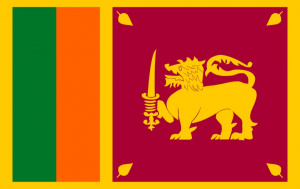Language/Sinhala/Vocabulary/Family-and-Relationships
As a Sinhala language teacher, I know that one of the most important aspects of daily life is family and relationships. In this lesson, we will learn how to talk about family members and relationships in Sinhala. By the end of this lesson, you will be able to have basic conversation about your family and loved ones.
Family Members
Let's start with some common family members in Sinhala:
| Sinhala | Pronunciation | English |
|---|---|---|
| මවු | mävu | Mother |
| පියවරු | piyavaru | Father |
| පුතානයි (පියයි) | puthanäyi (piyäyi) | Son |
| කොරියන් | koriyan | Daughter |
| දරුවන් | daruvan | Brother |
| සැමියා | sēmiya | Sister |
| මායා | mayä | Wife |
| ඉන්දීසි | indisi | Husband |
You can use these words to construct a basic sentence about your family. For example, "මගේ දුම්රිය මවු සහ පියවරු හමුවීමට මාගේ දුම්රිය ද අවස්ථාවක් නොතිබිය හැක." ("My fiance's mother and father are coming to meet me, so my fiance must be there.")
Let's try another example: "මගේ දරුවන් මට හිමිකමට යයි." ("My brothers are giving me a gift.")
Relationships
Now let's move on to some basic terminology for relationships:
| Sinhala | Pronunciation | English |
|---|---|---|
| මම ඔයාට පෙම්වත්ය | mam äyät pēmvatäy | I love you (to a significant other) |
| මම ඔයාගේ යහපත් කරු | mam äyägä yahapath karu | I miss you (to a significant other) |
| මම මාගේ මිතුරු යන්න දැක ගැනීමට යම් | mam mägä mithuru yanänu dēka gänimata yam | I need to talk to my friend. |
You can use these phrases to express your feelings and needs to your significant other or friends.
You can also use the following phrases to inquire about someone else's relationships:
- "ඔබට කොටසක් සම්බන්ධයෙන් හෝ කියවමු?" ("Are you seeing someone or married?")
- "කොහොමද ඔබ මාතෘකාවක් හෝ පසුගියේ ඇයි?" ("Have you ever had a girlfriend or boyfriend?")
It's important to note that in Sri Lankan culture, families are often quite close and involved in each other's lives, so understanding family relationships is very important for social interaction.
Conclusion
In this lesson, we learned some common family members and relationship terms in Sinhala. We also learned some phrases to express our feelings and needs in relationships, as well as some phrases to inquire about someone else's relationships. Understanding family relationships is crucial to social interaction and communication in Sri Lankan culture.
Remember to practice these words and phrases with native speakers and try to use them in everyday situations. Don't be afraid to ask questions and make mistakes – it's all part of the learning process!
Related Lessons
- Languages
- Animals
- Days of the Week
- Classroom
- How to Say Hello and Greetings
- Fruits
- Health
- People
- Speaking and Writing Production
- Verbs
Sources
Videos
Sinhala lesson 7 - Family members - YouTube
Names of Members of the Family in English with Sinhala ...
Family members and relations in Sinhala | පවුලේ සාමාජිකයන් ...

